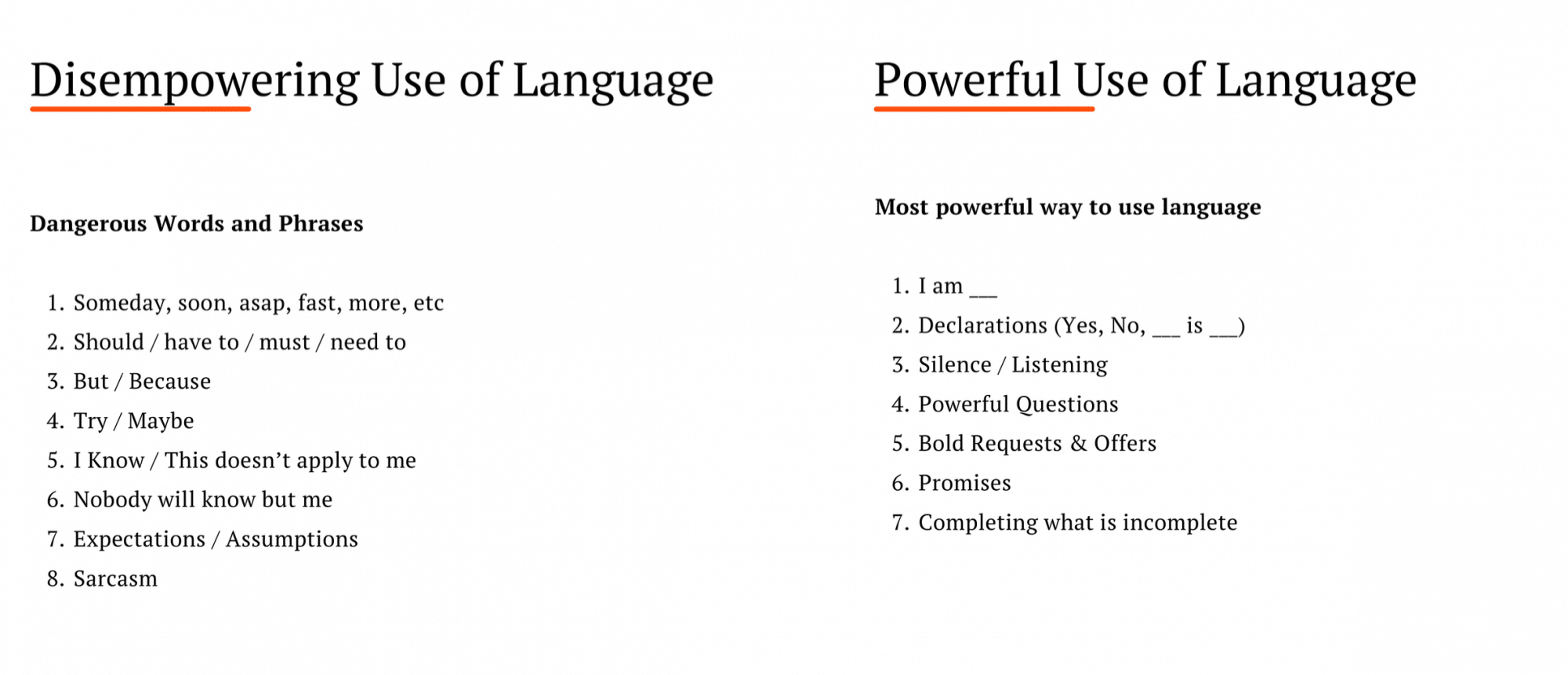Why “Try & Hope” Is Weak & Not a Strategy: Turn Wishful Thinking Into Actionable Results by Speaking Committed Language
Many leaders fall into the trap of saying, “I’ll try,” or “I hope this works.” It feels harmless, but these words are weak. They give you an easy out, allowing you to escape responsibility. Here’s the truth: hope is not a strategy, and trying is not committing. It’s time to ditch the wishful thinking and start using language that drives results.
The Problem with “Hope” and “Try”
When you say, “I’ll try to meet the deadline,” you leave yourself wiggle room. You’re already signaling that failure is an option. And when failure comes, you can shrug and say, “I tried.”
It’s like hoping your car will make it to the destination on an empty tank. Sure, you might get lucky, but chances are, you’re going to stall. And in business, stalling costs time, money, and trust.
Hope is a dangerous crutch. When you rely on hope, you’re giving up control. You’re handing over responsibility to chance instead of taking action. And guess what? Hope doesn’t pay your bills. Results do.
Similarly, saying “I hope we hit our numbers this quarter” is passive. You’re handing over control to fate, waiting for the stars to align instead of taking charge. This attitude creates a culture where no one is truly accountable.

Example:
Imagine your sales team saying, “We hope to close this deal next week.” What happens if they don’t? You’ve already set the expectation that hope was your plan all along. Instead, if the team says, “We will close this deal,” the energy shifts. There’s ownership. There’s action.
Why Committed Language Changes Everything
To create momentum and real results, you need to replace hope and try with committed language. When you commit, you’re saying, “I will make this happen, no matter what.” If obstacles come up, you deal with them. If delays happen, you communicate them immediately. Commitment removes the backdoor and puts you in control.
What Committed Language Sounds Like:
- “I will deliver this project by Tuesday.”
- “We will hit our targets by implementing these three actions.”
- “I commit to having a solution by the end of the week.”
Stop Hoping—Start Acting
Wishing and hoping give you nothing. They’re words of inaction. You’ve been conditioned to use them because they feel safer. But they’re a lie. True leaders don’t hope; they act. They commit to their word and make sure it’s kept.
When you eliminate “hope” and “try” from your vocabulary, something amazing happens. You take control. You own your results. And your team follows your lead.
Take Action Now:
- Review your recent promises. Did you say, “I’ll try”? Change it to, “I will.”
- Stop your team from saying, “We hope.” Ask them, “What will you commit to?”
- Create a culture where committed language is the only language.
When you stop trying and hoping and start committing, you’ll see immediate results. Integrity and commitment breed trust, drive momentum, and lead to real outcomes.
Your results are waiting for you. They don’t care about your hope. They care about your action. Turn wishful thinking into committed action, and watch how everything changes.
